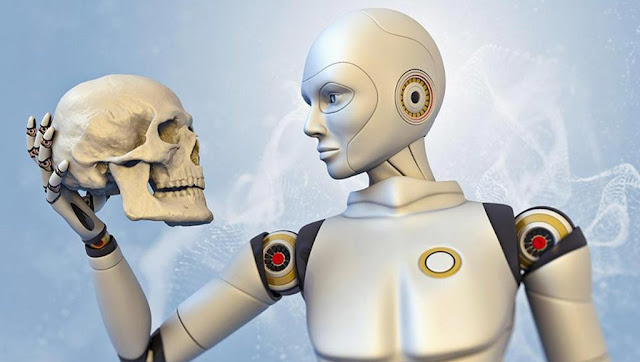In recent years, the number of studies on artificial intelligence has increased markedly. Artificial intelligence is supposed to help people and make life easier. But on the other hand, some experts have noted that artificial intelligence can lead to disaster and great danger to humanity.

Several hundred-page studies have talked about the dangers that artificial intelligence can cause when used in bad faith. Therefore, legislators and technical researchers must work together to understand and prepare for the problems that will result from misuse of artificial intelligence.
Here is a list of some possible scenarios and risks that may be caused in the near future:
Here is a list of some possible scenarios and risks that may be caused in the near future:
Alpha Go, an artificial intelligence system developed by Google's Dieppe Mind. It can outperform gamers, and hackers can also use it to detect data patterns and code gaps.
A person with bad intentions can purchase and track an unmanned aerial vehicle and provide it with a face recognition program to target a specific person.
There could be robots or fake videos to manipulate the statements of world politicians.
Hackers can use artificial intelligence and use it to synthesize audio in order to impersonate and fabricate statements by public figures.
Breakthroughs are faster through automated detection of software that can be hacked.
Use swarms of robots, drones or self-propelled vehicles as weapons.
Automatically find and remove text and images that are in opposition to the policies of some systems.
Collect and analyze data and information and create relationships among themselves, to target a person and influence his own opinion.
Hackers can use artificial intelligence and use it to synthesize audio in order to impersonate and fabricate statements by public figures.
Breakthroughs are faster through automated detection of software that can be hacked.
Use swarms of robots, drones or self-propelled vehicles as weapons.
Automatically find and remove text and images that are in opposition to the policies of some systems.
Collect and analyze data and information and create relationships among themselves, to target a person and influence his own opinion.

Miles Brondge, a researcher at the Institute for the Future of Humanity at Oxford University, said:
"Artificial intelligence will change the risk to citizens, organizations and nations. Criminal machines at the level of human capacity can be trained to steal passwords or use them for surveillance purposes. Artificial intelligence systems often not only achieve human performance, . "
"Artificial intelligence will change the risk to citizens, organizations and nations. Criminal machines at the level of human capacity can be trained to steal passwords or use them for surveillance purposes. Artificial intelligence systems often not only achieve human performance, . "

